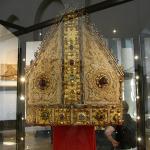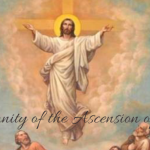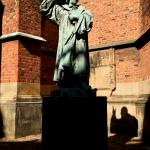In one sense of the word, such a claim is hardly controversial. Weigel is clearly of the American political Right, and he makes no apologies about that. (In my view, keeping such rigid company—on either side— is troubling in certain ways, but by no means offers immediate answers about the integrity of the person or their ideas.)
The point of this post, however, is to say that his recent article that compared Benedict’s newest encyclical to a duck-billed platypus and an untuned piccolo is quite right. By ‘right,’ I now mean ‘correct’ or ‘true.’ In fact, I would even say that Weigel offer us a tremendous insight in his much poo-pooed article about the meaning of the Church that is steeped in a sanity that we could all learn from.
Weigel’s reply to this encyclical tip toes between the credibility of the Pope and the interests that are competing with his credible views, as they did in the past with John Paul II. Weigel wants to argue that, when we read this encyclical, we would be remiss to think that it comes out of a pure Benedictine ego, unquestioned by the curial household. The implication here is that, in his gentle manner, Benedict ceded some ground to his neighboring advisers to preserve the fragile peace of the tedious—and contentious—inner-workings of the Vatican.
The implications of this argument are profound, I think. Weigel is effectively making a point that reaches into the very annals of Church controversy and brings up the basic questions that surround topics like papal infallibility, scriptural interpretation, and Church unity. He notes the fine line between superstition and grace that is not so easy to navigate when we read promulgated texts from the Vatican, their press releases, clerics, and so on.
Weigel effectively theorizes towards a post-structural approach to Church literature; where we do not take authorship at face value but look into the power/knowledge relations that constitute the thing in question and assume that the (competing) motives involved are steeped in structurations of conflict that create the Foucauldian notion of “governmentality.”
It may seem too ironic, but Weigel is right precisely because he takes into account the possibility of the impossible. And he does so based on a largely accurate understanding of Church (and papal) authority: Namely, that, a hermeneutic of suspicion is not heterodox to Catholic devotion, on the contrary, a simplistic or superstitious reliance on the intervention of the Holy Spirit as the norm in Vatican affairs is not necessarily orthodox at all, in fact, it can be downright dangerous.
Imagine, by extension, the way this would open up a robust dialogue for the interpretation of scripture in pastoral affairs—none more widely impacting than homiletics. Dissent, suspicion, and even robust imagination in conceiving not only the possible meaning of texts, but the rigor required to speak of the truly- impossible, would burst an entire new literary attitude into the Sunday pulpit.
Also, we might join our sister and brothers of the East in their various degrees of suspicion about Roman ecclesial authority. If the Vatican is a network of sectarian plots and missions, then, why not make room for more? Why not raise the taboo question about the somewhat lukewarm representative democracy that seems to take place at councils and papal conclaves? After all, this is precisely the kind of reasoning that might lead to a plausible (and expedient) reunification of the Eastern and Western Church.
Weigel may have been doing something totally different in his mind, he may have just been out to discredit the less-than-free economics this encyclical advocates for. But, it is clear to me that his line of reasoning is not destructive at all. In fact, it is just what we need.
Where Weigel might fall short of his intentions is that he never makes a convincing argument about the issues I assumed him to care about the most (economics, nation-states, environmentalism), he just dismisses that within his other, insightful exercise of imagination: Questioning the very heart of what it means to be orthodox by deconstructing the internal structures of the Church in Her most intimate household, the papal household.
Weigel may be wrong about many things, including the merits or demerits of Benedict’s new encyclical, but he is right about this: Using the Holy Spirit as a cover up for rigorously understanding the Church, warts and all, is a serious (and ultimately heterodox) mistake.
Thank you George Weigel!
















